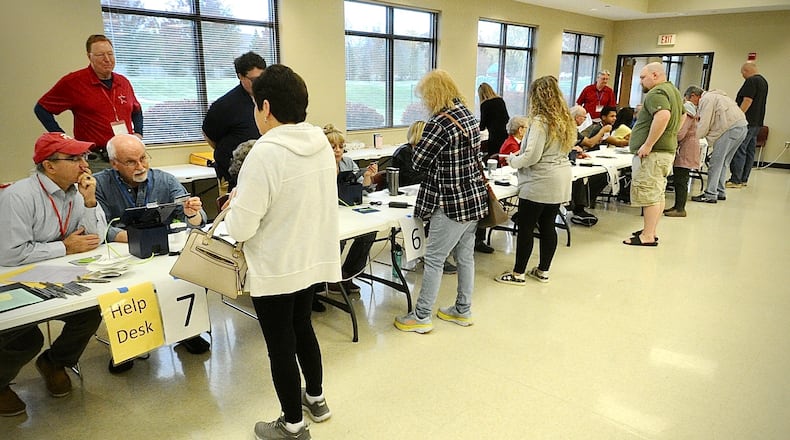Elections Director Laura Bruns told the board two people voted twice, first in early voting and then on Election Day.
Another voter who was not registered but asked to vote Election Day was given a provisional ballot. She filled out the ballot and then ran the ballot through the ballot scanner instead of returning it to a poll worker for processing.
The fourth voter referred was brought to the attention of election officials after she posted a message on social media describing how she had voted in the Troy election instead of Vandalia, where she now lives. Bruns said a poll worker brought a post to the elections’ staff attention. The poll book showed the woman voted on Election Day in Troy, Bruns said.
“It is kind of an odd scenario to have somebody posting on social media,” Bruns said, adding “We thought it should be brought to your attention.”
Board member Audrey Gillespie made the motion to refer the voter to prosecutors for voting in a location other than where the voter lives. The board voted unanimously to refer the incident to prosecutors.
“I recently moved to Vandalia (planning to move back eventually), but I am still registered to vote in Troy,” the woman wrote on social media. “I’m glad I was able to vote on your school levy over Vandalia’s, as Troy needed it more.”
Another participant on the social media site asked if the woman had voted to raise Troy’s school taxes, even though she doesn’t live in Troy.
“Yes. However, I work and do all of my shopping in Troy,” the voter answered. “My daughter went to Troy City Schools for three years. They needed the funding badly. We plan to move back to Troy in the next three years.”
The Dayton Daily News generally does not name suspects who have not yet been charged with any crime.
County Prosecutor Tony Kendell said the four cases were received by his office this week. His investigator, a retired police officer, will investigate. Depending on the number of irregularities alleged and the complexity, the investigations usually take two to six weeks, he said.
“It seems we have a few irregularities following just about every election held that we look into. The vast majority of the time the irregularities are determined to be mistakes and are not intentional in nature (and those) individuals are not charged,” Kendell said. “In the event that the actions are determined by the evidence gathered to be intentional, charges are then brought. The potential charges range from misdemeanors to felonies depending upon the actions taken by the suspect.”
Bruns said the elections office did not see any larger, organized vote fraud or registration fraud efforts during this fall’s election.
Contact this contributing writer at nancykburr@aol.com
About the Author

